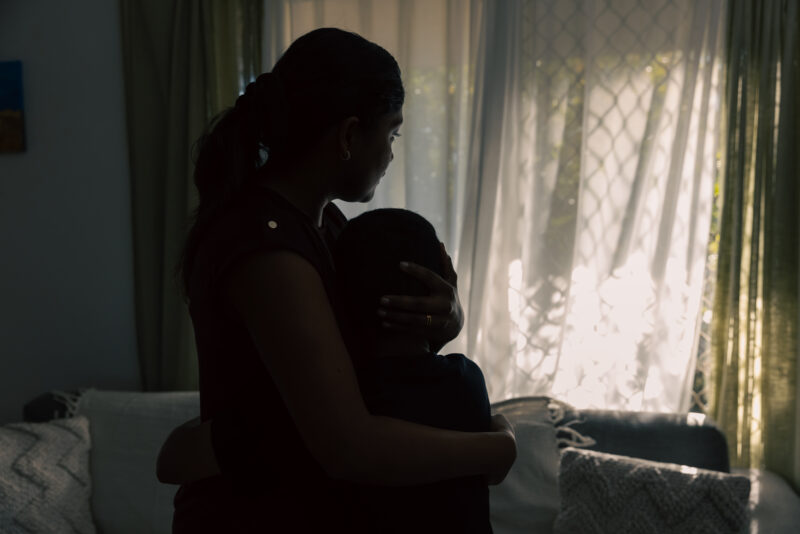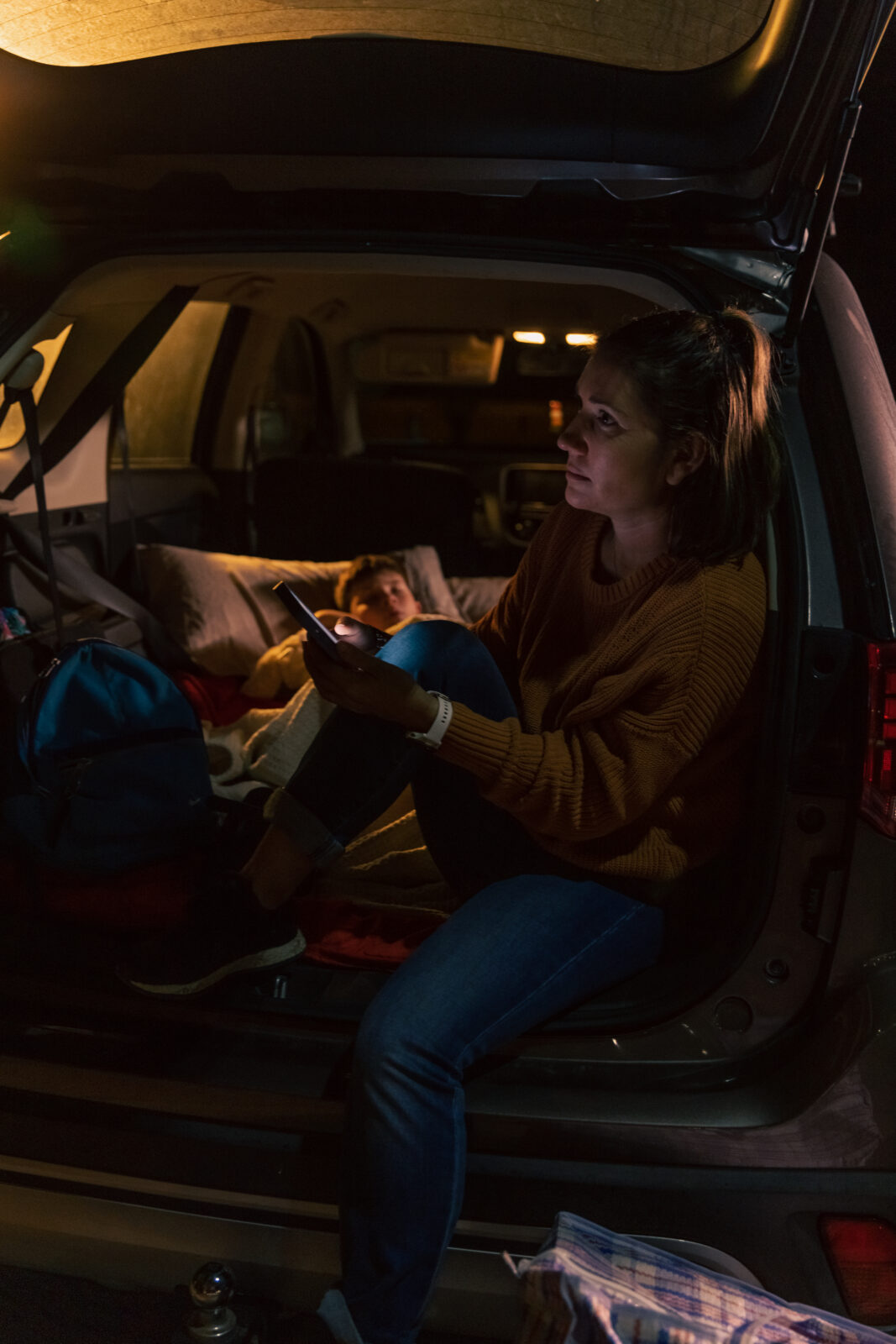Sara and Ruby are Recovery Practitioner’s in our Housing and Justice; and Women’s Pathways Programs. They’ve worked for our organisation for about two years and play a massive role in supporting vulnerable women experiencing homelessness. They help them to navigate complex systems, connect with relevant supports, and provide them with advocacy and connection to improve their circumstances.
As advocates and supporters of women in need, they share valuable knowledge and perspectives into the reasons that force clients to turn to their services. They also provide insights into how we, as a community, can do more for those they are working with.
How they’re helping women
As a Recovery Practitioner in the Housing and Justice team, Sara’s spent most of her time working in the Queensland Drug and Alcohol Court program. Currently, she’s on secondment to the Women’s Pathways pilot program in Ipswich.
She explains that her role involves, “working alongside participants to help them navigate complex systems that often present barriers… to enable participants to have their rights and needs met.”
“From helping people access housing, to building social participation and employment capacity, my role helps to support people’s wellbeing through advocacy and connection.”
Ruby, who works as a Recovery Practitioner in the Women’s Pathways Program, helps women in remand who are finding homelessness is affecting their access to bail.
Like Sara, Ruby’s role involves a lot of advocacy to help people access what they need from complex and unfair systems. She explains, “we have to think creatively to make things happen for people.”
“We help by meeting people where they’re at in the community and can provide transport, help them address financial hardship and support them in any way they need. Whether that’s with their mental health, domestic violence, alcohol and other drugs, living and parenting skills, etc.,” Ruby explains.

Approach to support and guidance
When working with their clients, Sara and Ruby emphasise the importance of creating a non-judgmental and accepting space for them. Moreover, it’s important for them to build relationships with their clients and use trauma-informed and person-centred approaches. That’s because all their clients have had different experiences.
Ruby says, “I like to show them that I’m not an expert and we’re learning/trying things together. It’s important to create a space where it’s okay to make mistakes and reflect on them.”
Reasons people turn to our services
Women and children account for almost half of Australia’s homeless population. The Homelessness Australia Homelessness and domestic violence state of response 2024 report identified family and domestic violence (45%), financial difficulties (39%) and the housing crisis (36%) to be the three leading reasons that women and girls sought homelessness assistance in Australia.
“Under our current system of capitalism, housing is treated as a commodity rather than a human right. For those without inherited wealth, it’s not possible to participate in this system. We’re experiencing a housing crisis where landlords are profiting off people’s desperation,” explains Ruby.
“Social housing is not prioritised by the Government, profits are. People’s experiences of trauma, and how it impacts them, means they’re discriminated against and excluded from housing options. Direct links can be made between people’s trauma history and their criminal matters… People come into our services when their trauma leads to criminalisation and their criminalisation leads to homelessness.”
Additionally Sara, explains, “cumulative disadvantage, accompanied by systemic issues has created a cycle of vulnerability that’s led them to be engaged with our service.”
How can the community do more to support our services?
Sara explains that it’s important for people to break down the stigma of homelessness. Additionally, it’s important to advocate to local government representatives for initiatives that promote investment into long term solutions.
Furthermore, Ruby says that it’s important to, “Be angry at injustice and be inspired to re-think the system and fight for change. Challenge people on their attitudes towards those with a criminal history, people who use drugs and people experiencing homelessness. Reflect on the systems we live under and how they create these circumstances. Homelessness is everyone’s problem, and it’s solvable!”
